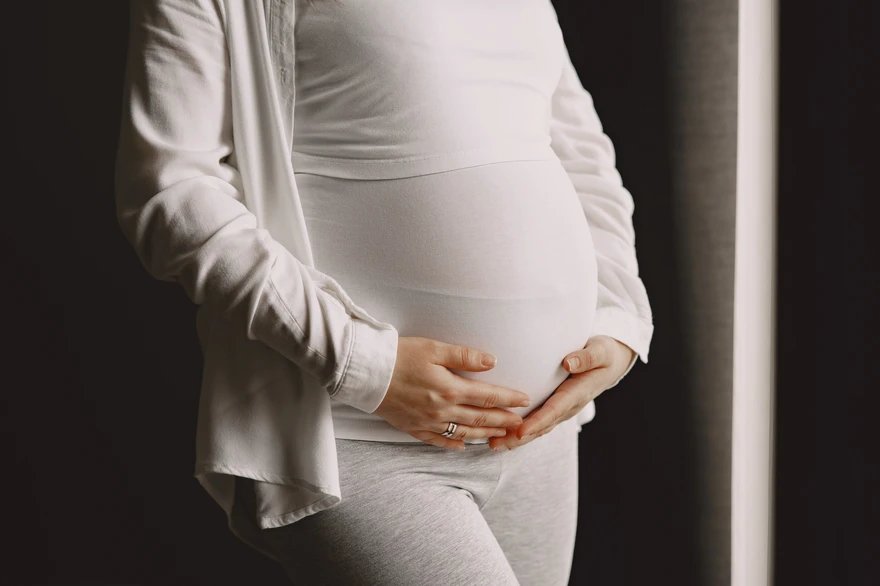Preventive Healthcare
Eclampsia: Symptoms, Causes, Risks, and Treatments for Expectant Mothers
884 Views
0

What is Eclampsia?
Eclampsia is a serious condition that occurs during pregnancy, characterised by an onset of seizures in a woman with preeclampsia, a disorder marked by high blood pressure and protein in the urine. These seizures can occur during pregnancy or or shortly after delivery and are considered a medical emergency.
Eclampsia usually manifests after the 20th week of pregnancy, most commonly in the third trimester or immediately postpartum. Symptoms include convulsions, changes in mental status, and potentially life-threatening complications like stroke or coma.
The exact cause of eclampsia remains unclear, but it is associated with abnormal blood flow to the brain due to hypertension. An immediate medical intervention is essential, often involving the delivery of the baby to prevent further complications for both the mother and child.
What is the Difference Between Preeclampsia and Eclampsia?
Both preeclampsia and eclampsia are linked to high blood pressure during pregnancy, but they are different. Preeclampsia refers to high blood pressure and other anomalies like protein in urine during pregnancy. Eclampsia includes all of these symptoms plus seizures. Eclampsia is essentially a severe form of preeclampsia.
What are Risk Factors for Eclampsia?
Numerous factors can increase the risk of developing eclampsia. The major risk factor is having preeclampsia
Other factors include:
- Being pregnant with multiples
- Having an autoimmune condition
- Having a poor diet or being obese (BMI greater than 30)
- Suffering from diabetes, hypertension, or kidney disease
- First-time pregnancy
- Being younger than 17 or older than 35
- Having a family history of preeclampsia or eclampsia
However, you may still develop eclampsia even without these risk factors
What are the Warning Signs of Eclampsia?
Typically, there are warning signs preceding seizures caused by eclampsia.
These include:
- Severe headaches
- Difficulty breathing
- Nausea or vomiting
- Trouble urinating or reduced frequency of urination
- Abdominal pain (especially on the upper right side)
- Blurred vision or loss of vision
- Swelling of the hands, face, or ankles
What are the Symptoms of Eclampsia?
The most common eclampsia symptoms include seizures, severe distress, confusion, and loss of consciousness. It's crucial to seek immediate medical attention if these symptoms arise, as they require urgent attention to prevent complications.
What Causes Eclampsia?
Exact eclampsia causes are still unclear to medical researchers, However, it is believed to involve blood vessel problems, neurological factors, dietary issues and genetics.
How is Eclampsia Diagnosed?
Eclampsia is diagnosed primarily through assessing symptoms and conducting specific medical tests. The process typically starts with identifying signs of preeclampsia, which can develop into eclampsia.
Key diagnostic criteria include:
- Blood Pressure Measurement: A sustained systolic blood pressure of 140 mm Hg or higher, or a diastolic pressure of 90 mm Hg or higher, and indicates hypertension during pregnancy
- Urine Tests: The presence of protein in the urine (proteinuria) is assessed, typically through a 24-hour urine collection or a spot urine test. Protein levels greater than 300 mg in 24 hours may indicate preeclampsia
- Blood Tests: These tests assess kidney and liver function, along with platelet counts. Elevated liver enzymes and low platelet counts may indicate severe preeclampsia or eclampsia
- Clinical Symptoms: The occurrence of seizures in a patient with preeclampsia confirms the diagnosis of eclampsia. Other symptoms include severe headaches, visual disturbances, and abdominal pain.
Timely diagnosis is critical to avoid eclampsia complications and ensuring the safety of both the mother and the baby.
How is Eclampsia Treated?
The most common eclampsia treatment is delivering the baby. If the baby is at least 37 weeks gestation and both the mother and baby are stable, doctors may suggest inducing labor.
Medicines can be prescribed to help manage eclampsia. This includes anticonvulsants to prevent seizures, blood pressure medications to lower blood pressure, and corticosteroids to help the baby’s lungs develop.
What are Complications from Eclampsia?
Eclampsia complications can include placental abruption, preterm labor, blood clotting issues, stroke, stillbirth, and, in severe cases, death.
How Can I Reduce my Risk of Developing Eclampsia?
To reduce the risk of developing eclampsia, focus on maintaining a healthy lifestyle before and during pregnancy.
- Managing blood pressure is very important, monitor it regularly and consult your healthcare provider if it’s high
- Regular exercise can help lower blood pressure and improve overall health
- Adopt a balanced diet rich in fruits, vegetables, whole grains, and lean proteins while reducing salt intake to help manage hypertension
- For women at higher risk, healthcare providers may recommend low-dose aspirin starting at 12 weeks of pregnancy
- Additionally, make sure to get adequate calcium and vitamin D through your diet or supplements, especially if you don’t get much calcium in your food
- Regular prenatal check-ups are essential for early detection and management of any complications during pregnancy
Can You Recover from Eclampsia?
Most women with eclampsia recover fully after delivering the baby and placenta. Getting a quick treatment with magnesium sulfate is important to stop seizures and lower blood pressure. Postpartum recovery typically begins within 1-2 days after delivery, with blood pressure returning to normal range within 1-6 weeks in nearly all cases.
Is Eclampsia Always Fatal?
Although serious, eclampsia is not always fatal. With a prompt treatment and medical intervention, most people will recover.
How Does Eclampsia Affect My Baby?
Eclampsia can significantly impact baby’s health. It may lead to foetal growth restriction, where the baby grows more slowly due to insufficient blood flow and nutrients from the placenta. This can lead to low birth weight and developmental delays.
Additionally, eclampsia increases the risk of preterm birth, which can cause complications such as breathing difficulties and longer hospital stays. In severe cases, it can also cause a placental abruption, leading to stillbirth. Early delivery is often needed to protect both the mother and the baby, so regular prenatal care is essential for monitoring and managing the risks associated with eclampsia.
When to See a Doctor?
If you experience any warning signs or symptoms of eclampsia during your pregnancy, immediate medical attention is crucial. Contact your healthcare provider right away if you see any unusual changes.
Conclusion
Understanding, diagnosing, and treating eclampsia early can be crucial for the health of both mother and baby. Regular prenatal check-ups and open communication with your healthcare provider can help you manage this condition effectively.
At Metropolis Healthcare, we are dedicated to providing reliable pathology testing and health check-ups to help detect issues like preeclampsia early. Our qualified team offers at-home blood sample collection for your convenience and safety.
Schedule an appointment today, because every step is important for your health and the health of your baby.























 WhatsApp
WhatsApp